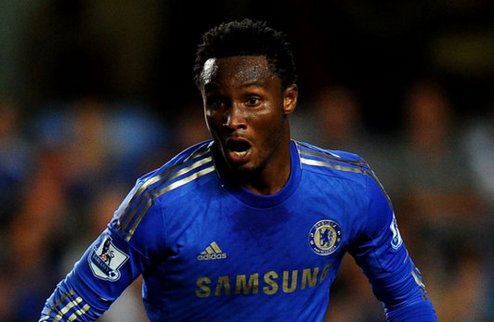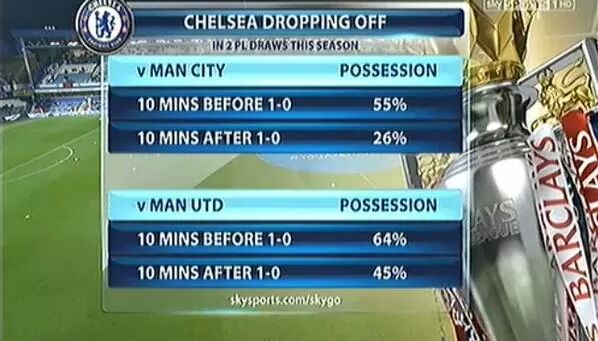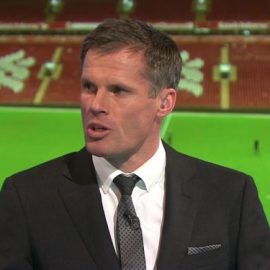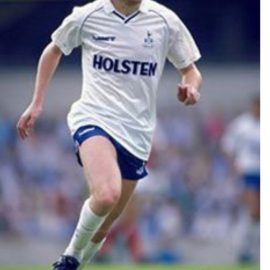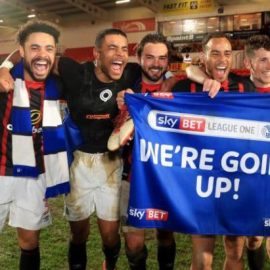Usually, when a player makes over 300 appearances for a club, the fans would hold him in the highest regard. Longevity is always associated with consistency, and players with such a long tenure at a single club are hard to come by these days. The case with John Obi Mikel though, is slightly different.
The Nigerian has been at Chelsea since 2006 and has made 315 appearances in all competitions for the Blues. He has never been a regular starter for a prolonged period of time, but managers have always used him to provide defensive solidarity to the team when needed.
Jose Mourinho, in the last two years, has used Mikel mostly as a substitute to kill games off after taking the lead. This season too, he has done the same. The plan has at times backfired, and has brought along some sharp criticism for the Portuguese, sometimes from his own fans.
Chelsea’s style of play has transformed over the last 3 seasons. From being a side who were defensively heavy and played off the counter, the Blues now dominate games and take the onus to attack on themselves. Mikel is a player who can hardly be of much use when Chelsea have to do all the running.
In the 2012/13 campaign, under Roberto Di Matteo and Rafa Benitez, Mikel made 22 appearances in the Premier League. Out of these 22 games, he started 19 and played the full 90 minutes in 11. This shows that he was an important part of a side that was still dependent more on its defence than attack. Injuries and suspensions prevented him from playing a bigger part. In the season before as well, when Chelsea won the Champions League, Mikel was an integral component. He was a major cog in Di Matteo’s tactics famously described by many as “park the bus”.
Last season, there was a big change. Mikel only started 11 games and was brought on as substitute on 13 occasions. Interestingly, 15 of his 24 appearances came away from home. This is a clear indication of the fact that Mourinho felt Chelsea needed him in midfield on their travels to prevent the opposition from breaching their backline. Since the arrival of Nemanja Matic in January though, Mikel’s appearances were few and far between.
This campaign, Mikel has made 6 appearances, all of the substitutes’ bench. Four of these games have been away from Stamford Bridge, and on two of those occasions, he was brought on to preserve a one-goal lead. In both those matches, away at Man City and Man United, Chelsea have ended up conceding a late equaliser. Mourinho seemed to have learned his lesson last week at Anfield, when he refrained from bringing the midfielder on even though his side were only one goal up in the closing stages of the game.
Despite being a loyal servant to Chelsea so far, there are some very concrete reasons why the club no longer needs John Obi Mikel. His influence, as stated above, has waned since Mourinho’s return, and his style of play isn’t at all in line with the brand of football Chelsea are looking to play.
With Cesc Fabregas, a summer arrival, being deployed in the pivot alongside Matic, Chelsea have found the perfect balance between defensive stability and attacking thrust. The system is very dynamic, and attacking midfielder Oscar also drops deep to provide cover. A major reason for the Blues’ unbeaten start to the season is that they have been very difficult to beat in midfield.
Ramires is used in away games against big sides for his incessant running and energy, and has done his job admirably well whenever called upon. All in all, Mikel is finding extremely difficult to find a place in the starting XI in any kind of game this season.
The 27 year-old offers close to nothing going forward, as his 4 goals in 315 appearances for the club clearly show. His introduction automatically forces Chelsea to go into a defensive mode, and allows the opposition to dominate possession in their half. Against strong teams like City and United, the Blues have paid the price. The following graphic reflects Chelsea’s attitude in the latter stages of these games, when Mikel has been on the pitch:
There is also a theory which states that Mikel is brought on in Oscar’s place to enable Fabregas to go further forward. But clearly, there is absolutely no need to do that. The Spaniard has created 32 chances from his deeper role, and is getting time and space to exert his influence on the game. With both Fabregas and Oscar on the pitch, Chelsea neither lose their defensive discipline nor their goal-scoring opportunities.
The fact of the matter is that Mourinho can do without Mikel. He may well be better off without him. Nathan Ake, a promising young Dutchman, is coming through the ranks and showing great promise. While being just as defensively solid as Mikel, he is also a very good forward passer of the ball.
At 27, Mikel will fetch a good price for Chelsea in the transfer market. There are sure to be several takers, and it is the right time for the club to sell the Nigerian and with him the last component of their ‘bus’.
Add Sportslens to your Google News Feed!
